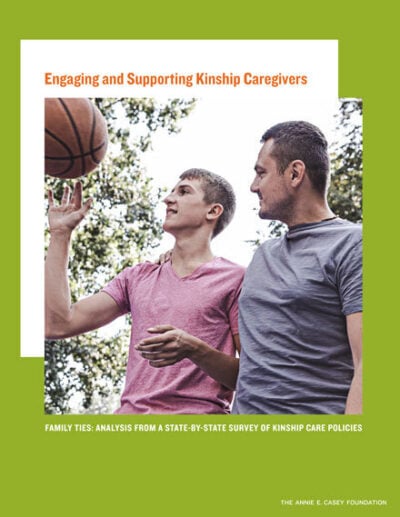Summary
The Annie E. Casey Foundation enlisted Child Trends to survey state child welfare administrators as a follow up to a comprehensive survey conducted in 2007. Agencies in the 50 states, the District of Columbia and Puerto Rico received the 2022 survey and 46 locations completed it. This publication shares the 2022 survey results, which can help to advance the field’s understanding of what states are doing to find, inform and partner with kin when a child enters foster care. It is the fourth installment of a five-part series called Family Ties, released in 2024.
Survey Findings
Generally speaking, the survey results reveal increasing efforts by states, the District of Columbia and Puerto Rico to promote kinship care and support for kinship caregivers. For instance:
Family members — when called upon to become caregivers — need and deserve timely information and productive relationships with caseworkers and child welfare agencies. About half of states reported using notification materials that included information about how to become a licensed caregiver or explained the implications of not responding. An equivalent share of states confirmed that they collected data on outreach efforts with relatives. Fewer than 10 states provided notices that outlined the process for visiting or writing to the child involved or included the date of the next court hearing or family team meeting.
Child welfare agencies use family team meetings to bring families and professionals together to make decisions in a child welfare case. Relatives and close family friends often have a deeper understanding of a family's strengths and challenges. An encouraging number of states reported requiring some type of family team meeting, according to the survey findings. In addition, results indicate that, while most states have a kinship navigator program, many of these programs are not available statewide or inclusive of all kinship caregivers.
Data Tables
The report's data tables share a more detailed look at each participating state's responses to the 2022 survey. These tables provide information on a state's required search methods, the points at which family team meetings are required, which states administer kinship navigator programs and more.






